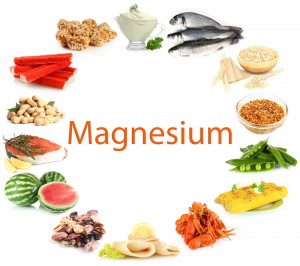 Magnesium is one of the commonest substances in our body. And yet, many of us are deficient in it. Common causes for magnesium deficiency include: dietary choices (processed foods, fizzy drinks), Calcium supplements (disturbing the natural balance between magnesium and calcium), Digestive disorders, stress and alcohol addiction.
Magnesium is one of the commonest substances in our body. And yet, many of us are deficient in it. Common causes for magnesium deficiency include: dietary choices (processed foods, fizzy drinks), Calcium supplements (disturbing the natural balance between magnesium and calcium), Digestive disorders, stress and alcohol addiction.
Magnesium-rich food includes whole grains, leafy greens, nuts and seeds. High intensity farming, food processing and the availability of convenience foods with added sugars and fats has had its impact.
Signs which show your diet has inadequate magnesium:
- Muscle cramps
Muscle cramps is the most important symptom of magnesium deficiency. These cramps may wake you in the middle of the night. The cramps are the result of involuntary muscle contractions. Magnesium helps to relieve involuntary muscle contractions by relaxing muscles. Magnesium supplements help to restore the normal relaxation and contraction of muscles during exercise.
- Sleep Problems:
Magnesium is also important for central nervous system functions. Insomnia is associated with the deficiency of magnesium. REM stage of sleep is very important for the healthy body and mind. Magnesium deficiency affects the quality and quantity of REM stage of sleep which cause poor CNS functioning,
- Anxiety:
It is one of the earliest symptoms of a poor functioning Central Nervous System.
- Blood pressure:
Magnesium is associated with the relaxation and dilatation of your blood vessels. Low magnesium means improper relaxation of the blood vessels , which can cause high blood pressure.
- Less common symptoms:
Other less common symptoms are arrhythmia (irregular heart beat), constipation, tiredness, headache and osteoporosis.
Should you suffer from any of the symptoms above, please seek take to your Chiropractor or GP first.

